Animal Assisted Therapy
“AAT is a goal directed intervention in which an animal meeting specific criteria is an integrated part of the treatment process. AAT is delivered and/or directed by a health/human service provider working within the scope of his/her profession. AAT is designed to promote improvement in human physical, social, emotional, and/or cognitive functioning (thinking and intellectual skills.) AAT is provided in a variety of settings and may be group or individual in nature. This process is documented and evaluated.”
According to Animal-Assisted Therapy-Therapeutic Interventions, AAT is not a style of therapy, like rational-emotive therapy, cognitive therapy, behavioral therapy, etc. Instead, a therapist who utilizes AAT operates from his/her professional foundation and facilitates change in a client through the client’s interactions with an animal.
Physical therapists, occupational therapists, certified therapeutic recreation specialists, recreational therapists, teachers, social workers, and others can incorporate AAT into their work and treatments in a multitude of ways.
The animals are a catalyst to help the patients help themselves. For example, a child may not want to walk or reach after surgery because it is painful, but will happily take a dog for a walk or throw a ball, forgetting the pain for a little while and moving closer to going hom e.
For example a spastic child, who is not able to move his hands, is asked to move his hands for exercise purpose, may not be motivated enough to do so. BUT when he is assisted by an animal therapist, and the same exercise is conducted as a game play of “Fetch” with the therapy dog, the child will be motivated to lift the ball with his hands and throw it towards the dog.
We have successfully introduced and implemented animal assisted therapy for:
- Mentally challenged children
- Autistic children
- Hyperactive children
- Physically disabled
- Children with hearing and speech impairment
- Children with developmental disability
- Cancer patients
- AIDS orphans
- Elder people
- People with post-traumatic stress disorder.

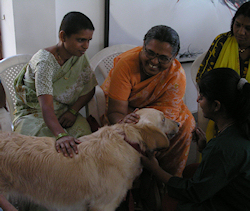
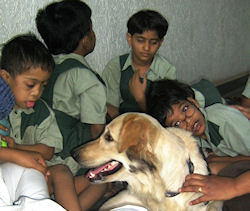

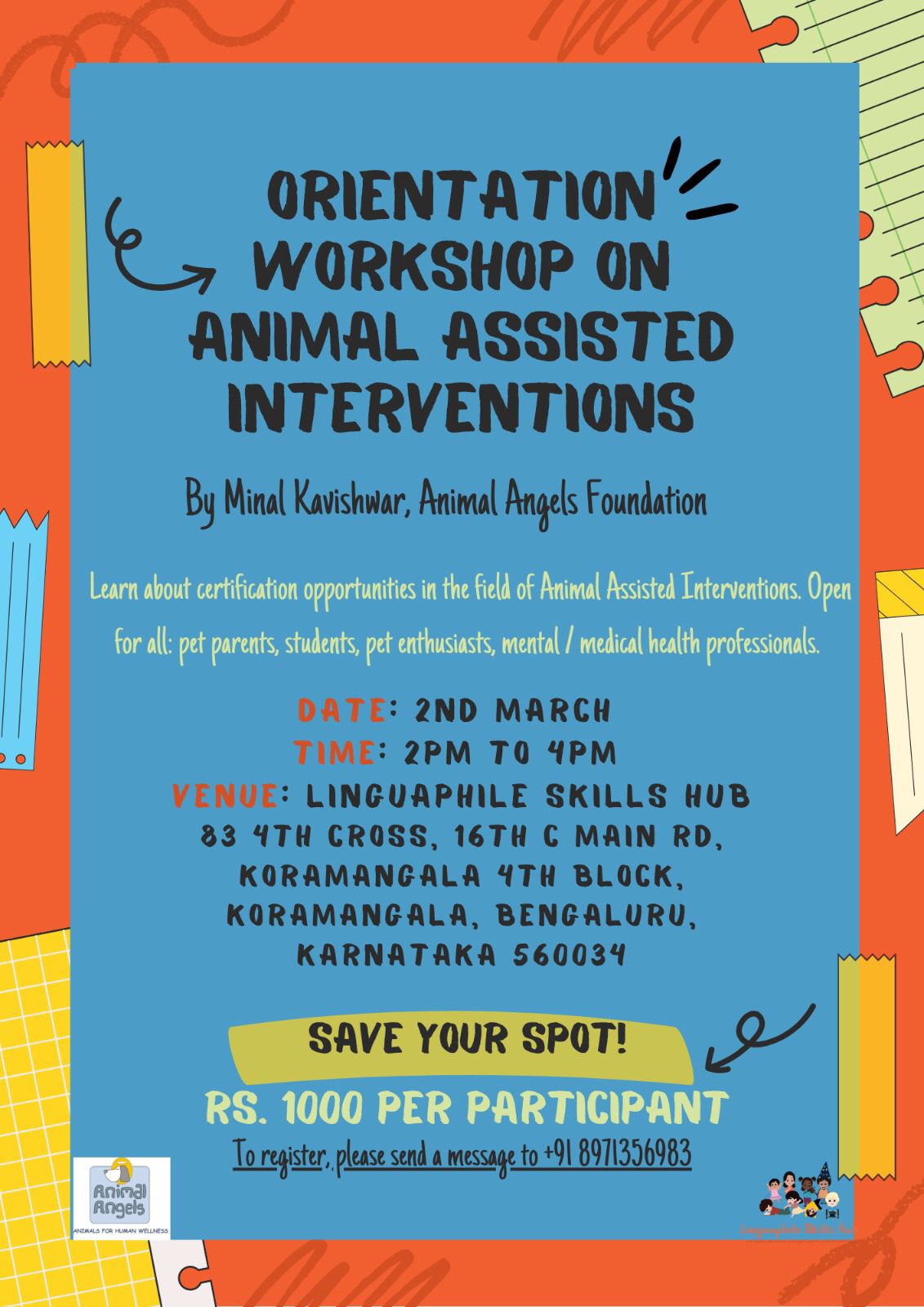
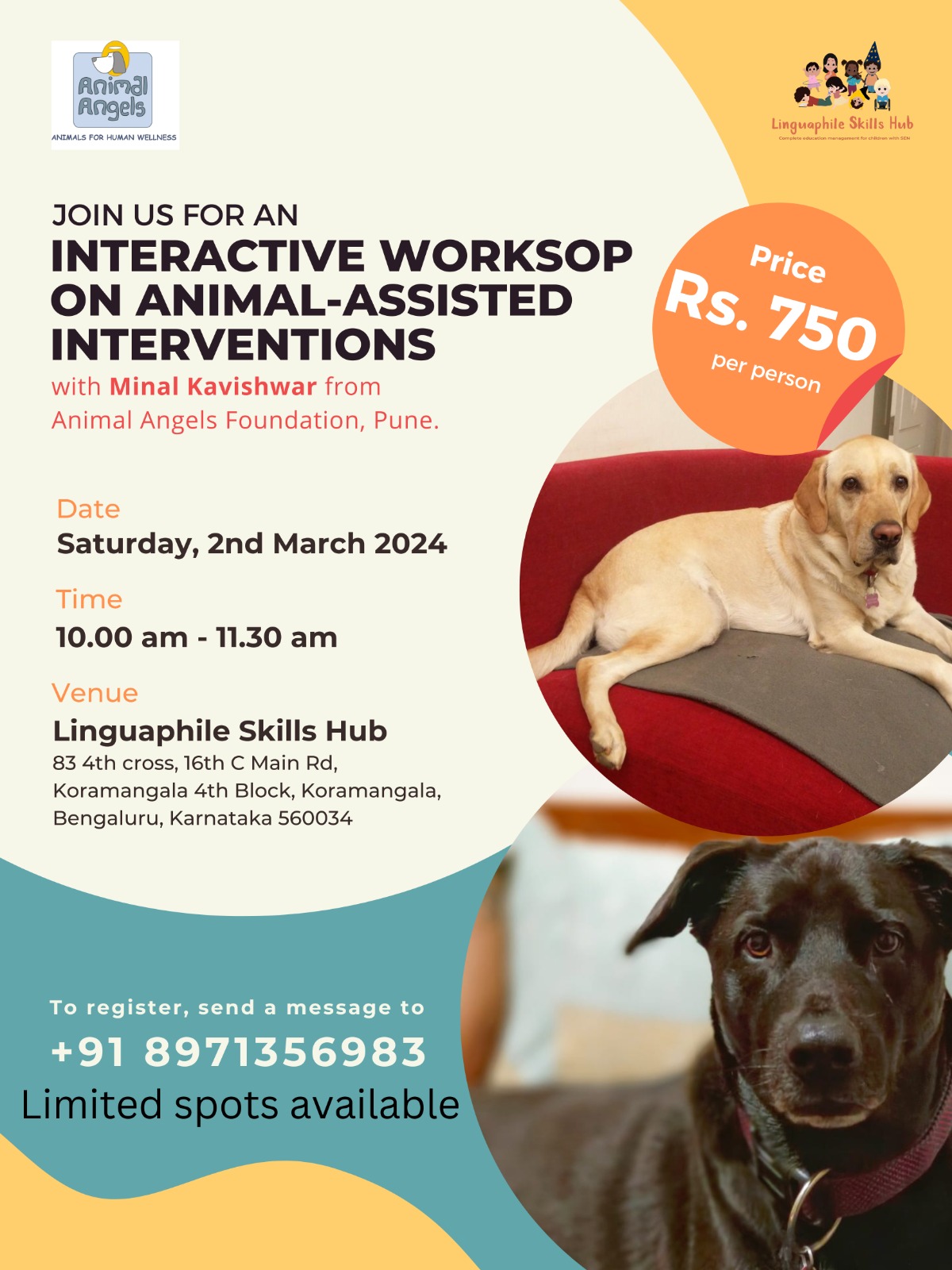
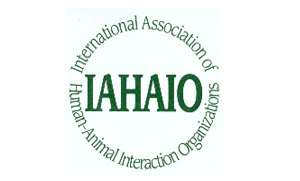

 Animal Angels team presented at the ISAZ Conference, Australia
Animal Angels team presented at the ISAZ Conference, Australia Minal Kavishwar gets awarded by the Women Economic Forum
Minal Kavishwar gets awarded by the Women Economic Forum Our founder, Mrs. Minal Kavishwar is now Pet Partner International Evaluator
Our founder, Mrs. Minal Kavishwar is now Pet Partner International Evaluator Animal Assisted Interventions for Caregivers
Animal Assisted Interventions for Caregivers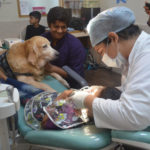 Therapy dogs assisting Dentist to reduce anxiety – Latest research by Animal Angels Foundation
Therapy dogs assisting Dentist to reduce anxiety – Latest research by Animal Angels Foundation Collaboration between Animal Angels Foundation and Dr. Cynthia Chandler, Center of Animal...
Collaboration between Animal Angels Foundation and Dr. Cynthia Chandler, Center of Animal...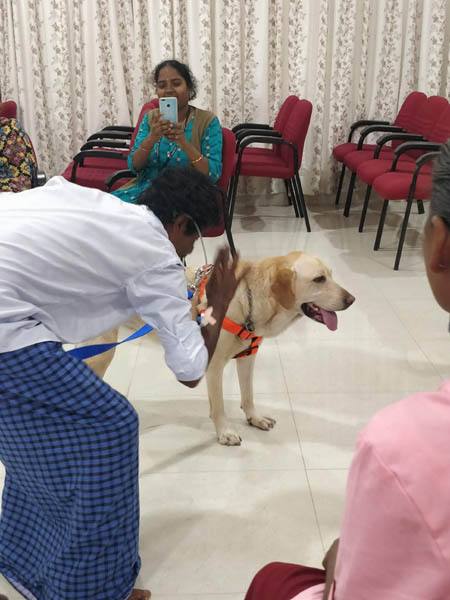


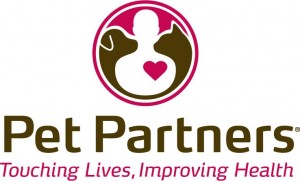








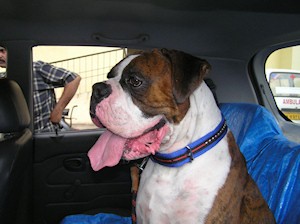
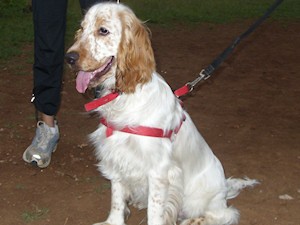


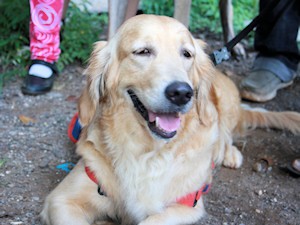

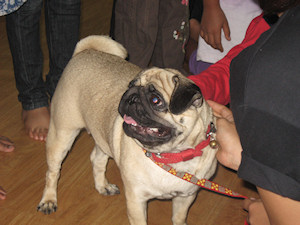
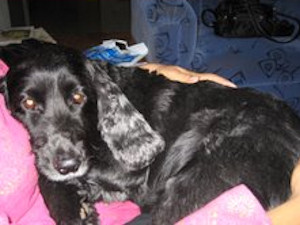
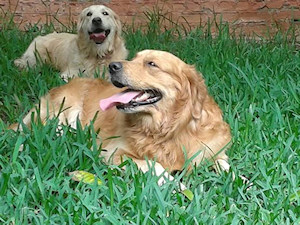






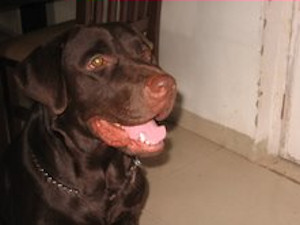




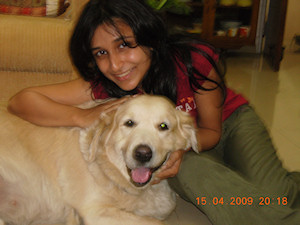
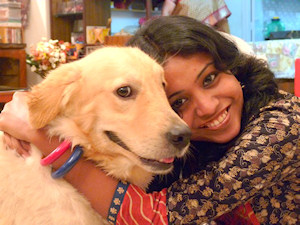


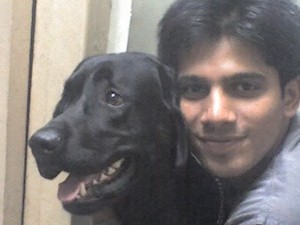

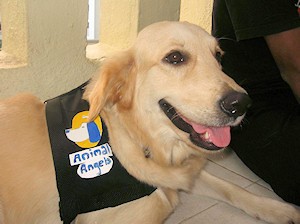



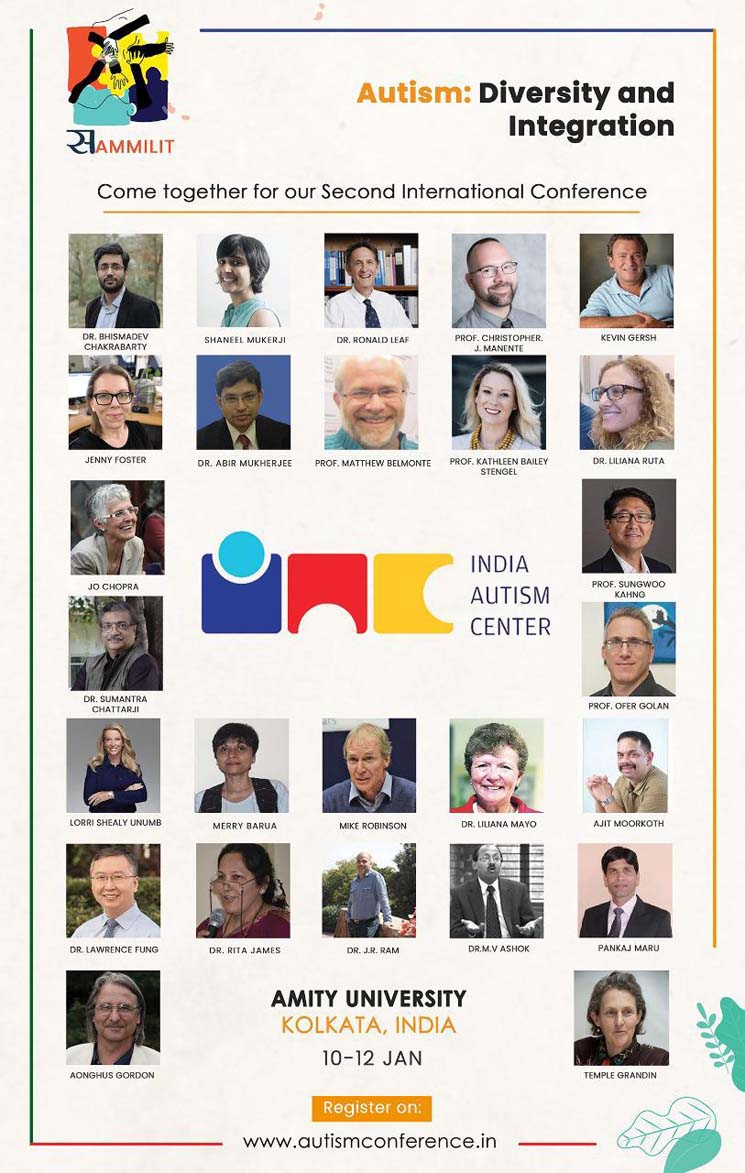

 Animal Angels team presented at the ISAZ conference held at the University of Sydney in Australia. Our team presented a paper based on the research conducted at the DY Patil Dental Hospital, on Effect of Therapy dogs on Pediatric Dental Anxiety.
[ngg_images source="galleries" container_ids="9" display_type="photocrati-nextgen_basic_imagebrowser" ajax_pagination="0" order_by="sortorder" order_direction="ASC" returns="included" maximum_entity_count="500"]
Animal Angels team presented at the ISAZ conference held at the University of Sydney in Australia. Our team presented a paper based on the research conducted at the DY Patil Dental Hospital, on Effect of Therapy dogs on Pediatric Dental Anxiety.
[ngg_images source="galleries" container_ids="9" display_type="photocrati-nextgen_basic_imagebrowser" ajax_pagination="0" order_by="sortorder" order_direction="ASC" returns="included" maximum_entity_count="500"] Our founder, Mrs. Minal Kavishwar, was presented with the 'Exceptional Women of Excellence' award, at the Women’s Economic Forum held at Vivanta, Dwarka, Delhi, by the All Ladies League. She was also the keynote speaker for the forum and addressed the group on 'Disruptive Innovations in Health and Wellness'.
Our founder, Mrs. Minal Kavishwar, was presented with the 'Exceptional Women of Excellence' award, at the Women’s Economic Forum held at Vivanta, Dwarka, Delhi, by the All Ladies League. She was also the keynote speaker for the forum and addressed the group on 'Disruptive Innovations in Health and Wellness'.
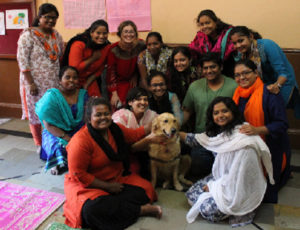
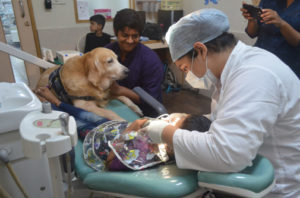
 For the past three years, Mrs. Kavishwar has been conducting India’s only comprehensive course in Animal Assisted Therapy, through the Animal Angels Therapy Center, and for the past two years, thanks to a tie-up with Dr. Chandler, has made Dr. Chandler’s renowned book, “Animal Assisted Therapy in Counseling”, an official part of her course as well. Now, Mrs. Minal Kavishwar and her team at the Animal Angels Foundation have been selected by Dr. Chandler to be a part of a documentary film that she is making on five prominent people working in the field of Animal Assisted Therapy across the world. This is a great honor for the entire team and especially for Mrs. Kavishwar. With her visit to India, Dr. Candler and Minal Kavishwar would be collaborating further on creating training opportunities and providing global platform for people in India to learn Animal Assisted Therapy.
Currently Dr. Chandler offers a home study program under the University of North Texas in AAT in Counseling and Mrs. Kavishwar conducts her own course in basic and advanced training in Animal Assisted Therapy in India. Mrs. Kavishwar, as a part of her collaboration with Dr. Chandler also trains students in the practical implementation of AAT in the Indian setting and provides them internship opportunities with Animal Angels Foundation.
For the past three years, Mrs. Kavishwar has been conducting India’s only comprehensive course in Animal Assisted Therapy, through the Animal Angels Therapy Center, and for the past two years, thanks to a tie-up with Dr. Chandler, has made Dr. Chandler’s renowned book, “Animal Assisted Therapy in Counseling”, an official part of her course as well. Now, Mrs. Minal Kavishwar and her team at the Animal Angels Foundation have been selected by Dr. Chandler to be a part of a documentary film that she is making on five prominent people working in the field of Animal Assisted Therapy across the world. This is a great honor for the entire team and especially for Mrs. Kavishwar. With her visit to India, Dr. Candler and Minal Kavishwar would be collaborating further on creating training opportunities and providing global platform for people in India to learn Animal Assisted Therapy.
Currently Dr. Chandler offers a home study program under the University of North Texas in AAT in Counseling and Mrs. Kavishwar conducts her own course in basic and advanced training in Animal Assisted Therapy in India. Mrs. Kavishwar, as a part of her collaboration with Dr. Chandler also trains students in the practical implementation of AAT in the Indian setting and provides them internship opportunities with Animal Angels Foundation.


 Dr. Cynthia Kay Chandler, a renowned Counselor and AAT (Animal Assisted Therapy) practitioner from University of North Texas, US visited India last week. Animal Angels Foundation was the official host while she was visiting India. Dr. Chandler was visiting India to film an interview with the founder of Animal Angels Foundation, Mrs. Minal Kavishwar, a pioneer in the field of Human Animal Interaction and instrumental in introducing the field of Animal Assisted Therapy in India. Dr. Chandler was visiting India to shoot an interview as a part of her ongoing documentary on AAT practitioners around the world applying AAT in various settings.
While in India, Animal Angels Foundation had organized two workshops by Dr. Chandler for mental health professionals and students along with the heads of the institutes who have implemented AAT in India. It was an open idea sharing platform with the vision of creating an opportunity for AAT practitioners from India to share their experiences with AAT practitioners from abroad. The workshop was held at on the 14th of March 2015 at Balkalyan Sanstha, Pune (India’s one and only recreational center for children with disabilities) and on 18th of March 2015 at Academy of Learning and Development in Andheri, Mumbai (which is a school for children with
developmental disabilities and brain related injuries, run by Arti Deo and Ajinkya Deo). The workshop was attended by heads of various special schools and institutes, students of Minal Kavishwar and Dr. Chandler from Mumbi, Pune and Bangalore and various patrons of Animal Angels Foundation including India representative of Waltham Research Center UK, Mr.Umesh Kallahalli.
Dr. Chandler and Mrs. Minal Kavishwar have been associated with one another for the past twelve years. Dr. Chandler has been a mentor to Mrs. Kavishwar and has been instrumental in the growth of the Animal Angels Foundation.
Dr. Cynthia Kay Chandler, a renowned Counselor and AAT (Animal Assisted Therapy) practitioner from University of North Texas, US visited India last week. Animal Angels Foundation was the official host while she was visiting India. Dr. Chandler was visiting India to film an interview with the founder of Animal Angels Foundation, Mrs. Minal Kavishwar, a pioneer in the field of Human Animal Interaction and instrumental in introducing the field of Animal Assisted Therapy in India. Dr. Chandler was visiting India to shoot an interview as a part of her ongoing documentary on AAT practitioners around the world applying AAT in various settings.
While in India, Animal Angels Foundation had organized two workshops by Dr. Chandler for mental health professionals and students along with the heads of the institutes who have implemented AAT in India. It was an open idea sharing platform with the vision of creating an opportunity for AAT practitioners from India to share their experiences with AAT practitioners from abroad. The workshop was held at on the 14th of March 2015 at Balkalyan Sanstha, Pune (India’s one and only recreational center for children with disabilities) and on 18th of March 2015 at Academy of Learning and Development in Andheri, Mumbai (which is a school for children with
developmental disabilities and brain related injuries, run by Arti Deo and Ajinkya Deo). The workshop was attended by heads of various special schools and institutes, students of Minal Kavishwar and Dr. Chandler from Mumbi, Pune and Bangalore and various patrons of Animal Angels Foundation including India representative of Waltham Research Center UK, Mr.Umesh Kallahalli.
Dr. Chandler and Mrs. Minal Kavishwar have been associated with one another for the past twelve years. Dr. Chandler has been a mentor to Mrs. Kavishwar and has been instrumental in the growth of the Animal Angels Foundation.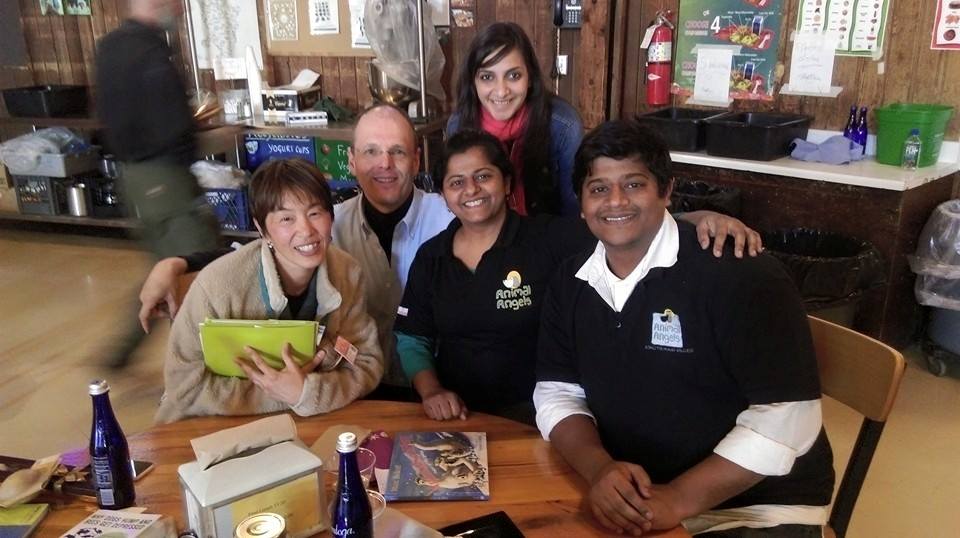
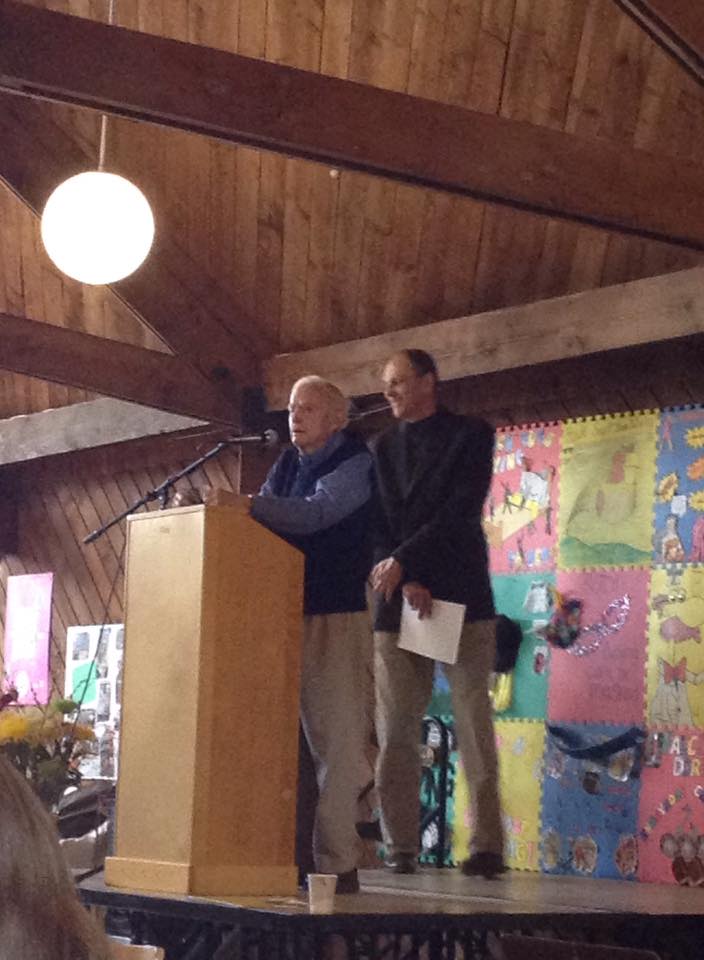 Green Chimney, a residential center for children with emotional instability, set up on a farm housing various farm animals. The Green Chimney hosts a Human-Animal-Interaction(HAI) conference every year to facilitate the well-being of humans and animals in a programmatic context.
Our team from Animal Angels was the only representative from India, along with 30 other representatives from all over the world. Attending such conferences and learning about new experiences is what makes us good and efficient with Animal Assisted Therapy(AAT).
Green Chimney, a residential center for children with emotional instability, set up on a farm housing various farm animals. The Green Chimney hosts a Human-Animal-Interaction(HAI) conference every year to facilitate the well-being of humans and animals in a programmatic context.
Our team from Animal Angels was the only representative from India, along with 30 other representatives from all over the world. Attending such conferences and learning about new experiences is what makes us good and efficient with Animal Assisted Therapy(AAT).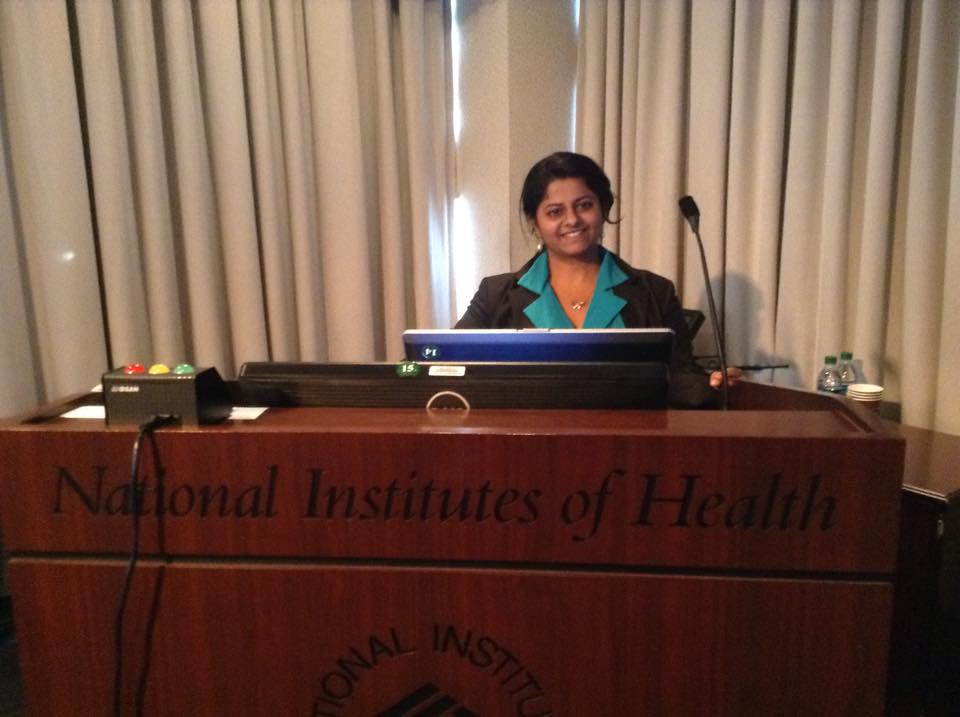 Minal Kavishwar, Founder of Animal Angels was invited to speak at the HAI workshop conducted by National Institute of Health (NIH), USA and Waltham on ‘Settings where AAT takes place – considerations and challenges.’
Mrs. Kavishwar was the first speaker from India to speak at the NIH and present about the work Animal Angels has been doing in India.
She said, “With so many great minds sharing and discussing the future of research and practice in AAT, it was an honour to present at the NIH and privilege to be amongst the best in the field.”
Minal Kavishwar, Founder of Animal Angels was invited to speak at the HAI workshop conducted by National Institute of Health (NIH), USA and Waltham on ‘Settings where AAT takes place – considerations and challenges.’
Mrs. Kavishwar was the first speaker from India to speak at the NIH and present about the work Animal Angels has been doing in India.
She said, “With so many great minds sharing and discussing the future of research and practice in AAT, it was an honour to present at the NIH and privilege to be amongst the best in the field.”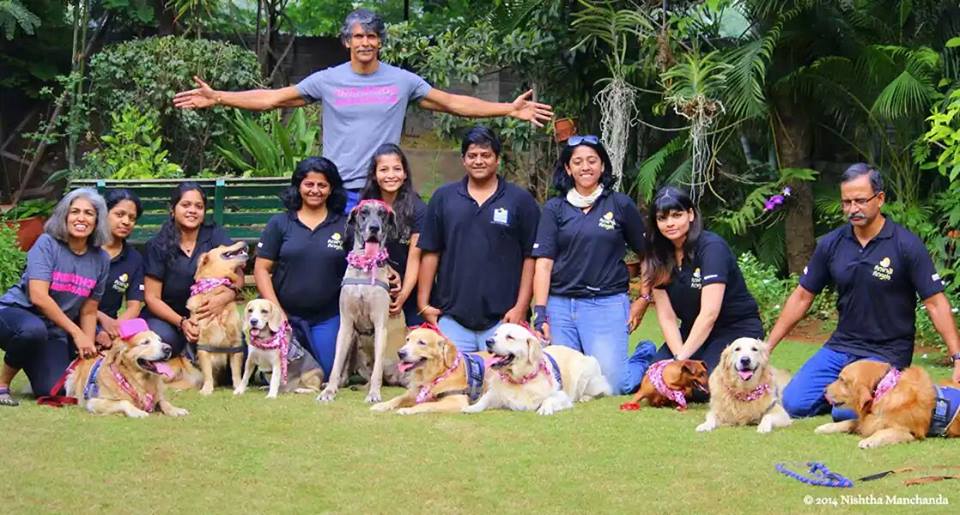 Our team of therapy dogs and volunteers ran the Pune Pinkathon in aid of breast cancer awareness on 16th of November, 2014. It feels great to be associated with such an important cause and it was overwhelming to see the positive response we got. We are grateful for the love and support we got from Milind Soman, Sonali Ogale and team Pinkathon for the opportunity to spread awareness about Animal Assisted Therapy in rehabilitative set-ups.
Pinkathon is a 10 kms International Run only for women. The objective of the event is to encourage
women’s health and fitness. Pinkathon also aims to raise awareness about breast cancer, its causes and prevention. Breast cancer is the leading cause of cancer deaths amongst women worldwide, in spite of it being one of the curable cancers if detected early.
Our team of therapy dogs and volunteers ran the Pune Pinkathon in aid of breast cancer awareness on 16th of November, 2014. It feels great to be associated with such an important cause and it was overwhelming to see the positive response we got. We are grateful for the love and support we got from Milind Soman, Sonali Ogale and team Pinkathon for the opportunity to spread awareness about Animal Assisted Therapy in rehabilitative set-ups.
Pinkathon is a 10 kms International Run only for women. The objective of the event is to encourage
women’s health and fitness. Pinkathon also aims to raise awareness about breast cancer, its causes and prevention. Breast cancer is the leading cause of cancer deaths amongst women worldwide, in spite of it being one of the curable cancers if detected early.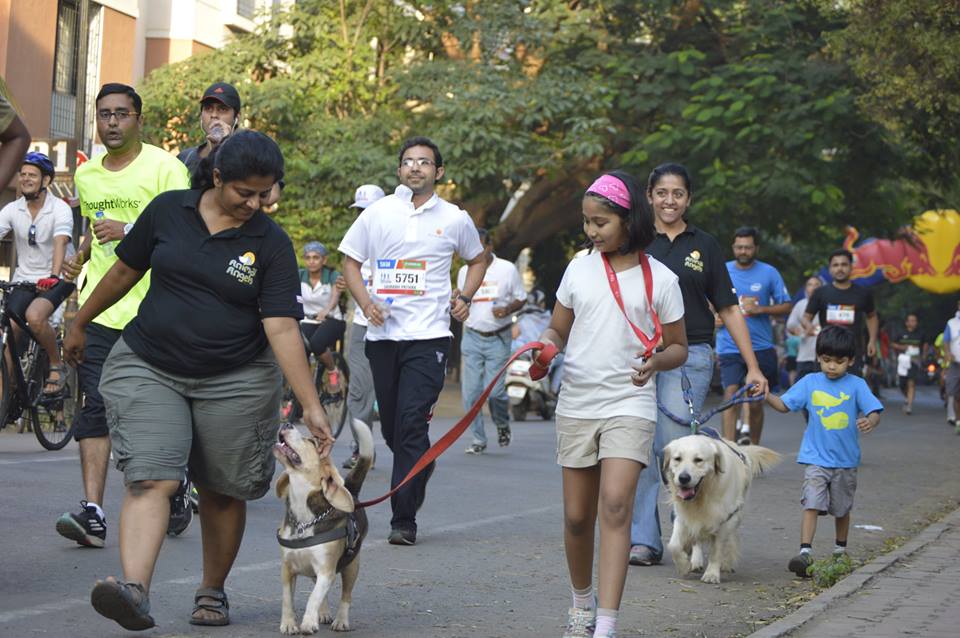 Second great year of participating in the 'Running Beyond Myself' Marathon, sponsored by Royal Canin and Union Bank of India.Our Therapy Dogs - Chiquita, Steffy, Oscar, Scotty and Hulk, along with the team, did the 3k walk and encouraged marathoners finishing their run, cheering them encouraging them and promoting the health benefits of walking with a pet. We were also the NGO partner for Pune Running.
Pune Running is a non-profit organization dedicated to health and fitness, we encourage, motivate and train people to take on running and in that, long distance – Marathon running. All this is done on a voluntary basis with no financial profit motive at all. All the programs are open to public.
Second great year of participating in the 'Running Beyond Myself' Marathon, sponsored by Royal Canin and Union Bank of India.Our Therapy Dogs - Chiquita, Steffy, Oscar, Scotty and Hulk, along with the team, did the 3k walk and encouraged marathoners finishing their run, cheering them encouraging them and promoting the health benefits of walking with a pet. We were also the NGO partner for Pune Running.
Pune Running is a non-profit organization dedicated to health and fitness, we encourage, motivate and train people to take on running and in that, long distance – Marathon running. All this is done on a voluntary basis with no financial profit motive at all. All the programs are open to public.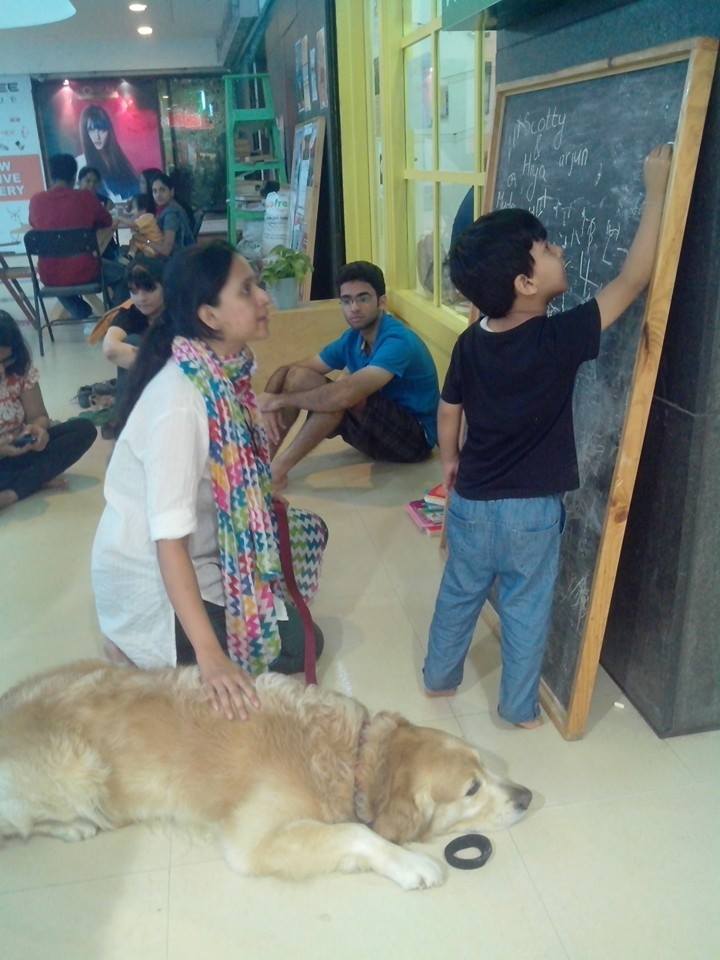
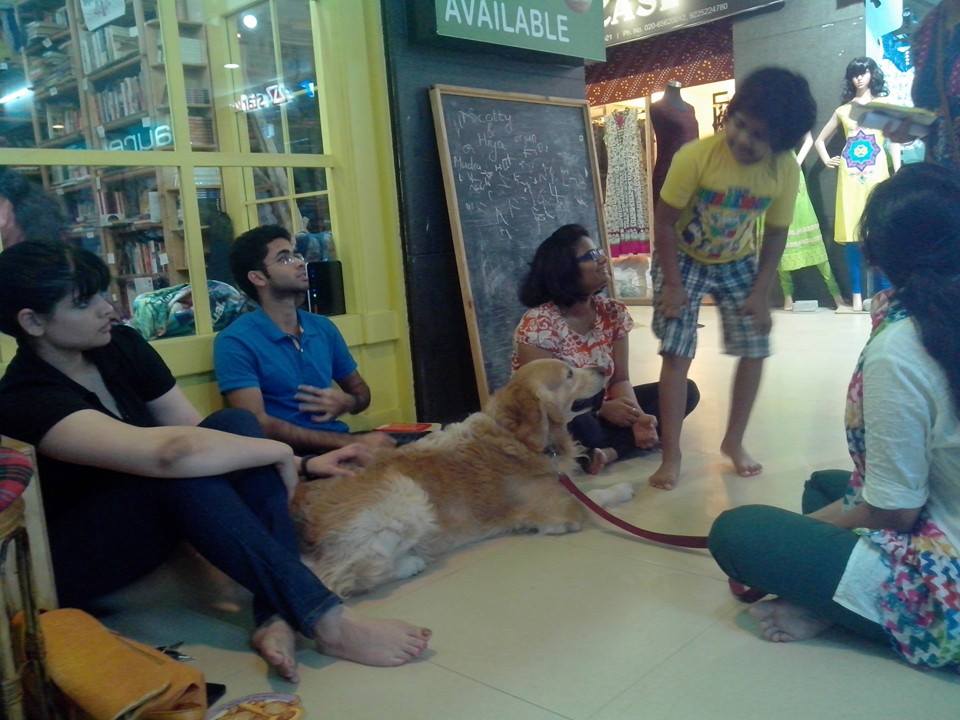 'Tails of Joy'! An Animal Assisted Reading program was held for kids and adults. Participants could read out their favourite stories to our four-legged friends. Starting from 22nd August, this event was conducted every friday evening at Pagdandi - Books Chai Cafe. The event was exceptionally well received with all the participants responding ecstatically. “Tails of Joy” is our Animal Assisted Reading program to enhance literacy skills and to encourage the joys of reading through interaction with trained animals. This program intends to enrich the literacy skills of children in an effective and interesting manner.
Animals are ideal reading companions because unlike peers, animals are attentive listeners; they don’t judge or criticize, so children are more comfortable and inclined to forget about their own fears. Children with low self esteem are often more willing to interact with an animal than other people. Further during such interactions, they forget their limitations. It is seen that children find reading to an animal less intimidating and transforms formerly dreaded reading events into a positive experience.
'Tails of Joy'! An Animal Assisted Reading program was held for kids and adults. Participants could read out their favourite stories to our four-legged friends. Starting from 22nd August, this event was conducted every friday evening at Pagdandi - Books Chai Cafe. The event was exceptionally well received with all the participants responding ecstatically. “Tails of Joy” is our Animal Assisted Reading program to enhance literacy skills and to encourage the joys of reading through interaction with trained animals. This program intends to enrich the literacy skills of children in an effective and interesting manner.
Animals are ideal reading companions because unlike peers, animals are attentive listeners; they don’t judge or criticize, so children are more comfortable and inclined to forget about their own fears. Children with low self esteem are often more willing to interact with an animal than other people. Further during such interactions, they forget their limitations. It is seen that children find reading to an animal less intimidating and transforms formerly dreaded reading events into a positive experience.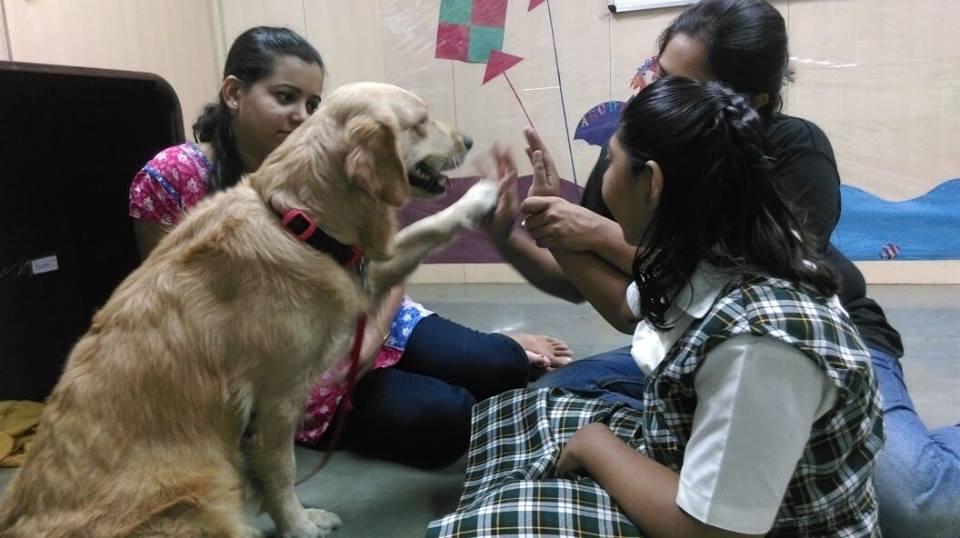 The children with special needs at the Vasant Vihar Special School in Thane had Therapy dogs Goldie and Therapy dog Sunshine, visit them every week to provide them Animal Assisted Therapy. Our therapy dogs along with our therapists worked closely with the special educator in addressing issues like hyperactivity, shyness, lack of stimulation, mobility and motor issues and need for expression in these children.
Therapy dogs Goldie and Sunshine were instrumental in bringing about remarkable changes in these children in just a matter of weeks.
The children with special needs at the Vasant Vihar Special School in Thane had Therapy dogs Goldie and Therapy dog Sunshine, visit them every week to provide them Animal Assisted Therapy. Our therapy dogs along with our therapists worked closely with the special educator in addressing issues like hyperactivity, shyness, lack of stimulation, mobility and motor issues and need for expression in these children.
Therapy dogs Goldie and Sunshine were instrumental in bringing about remarkable changes in these children in just a matter of weeks.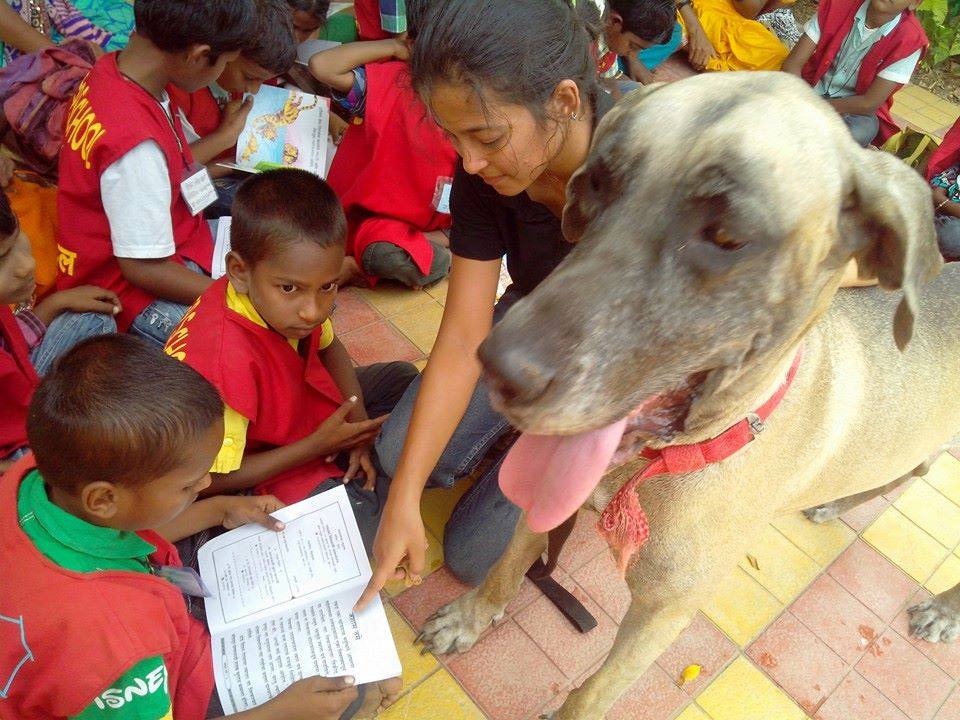
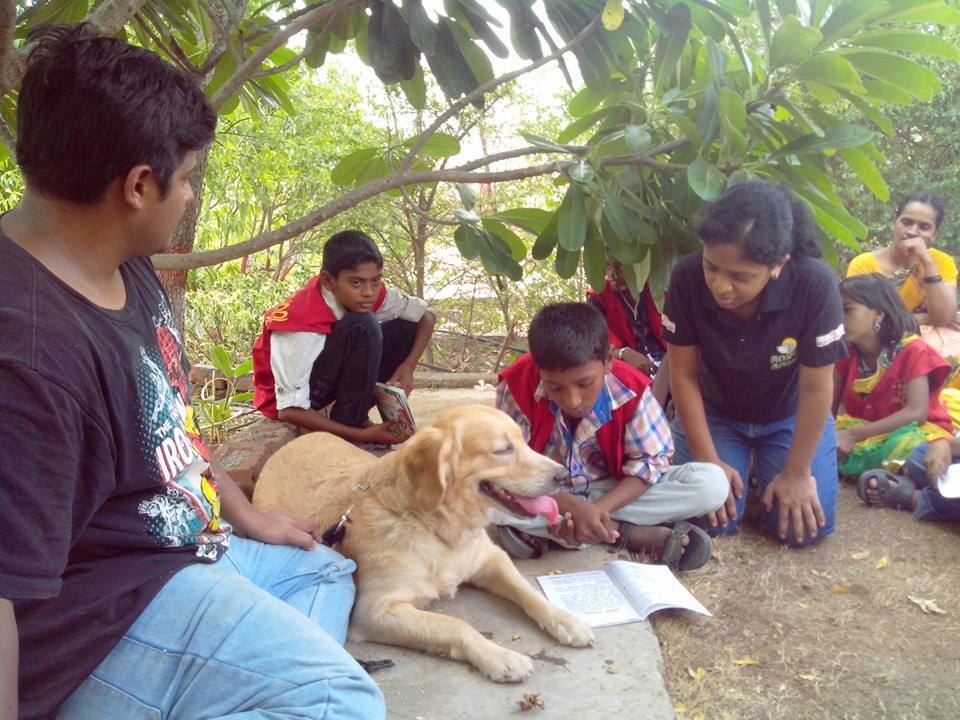
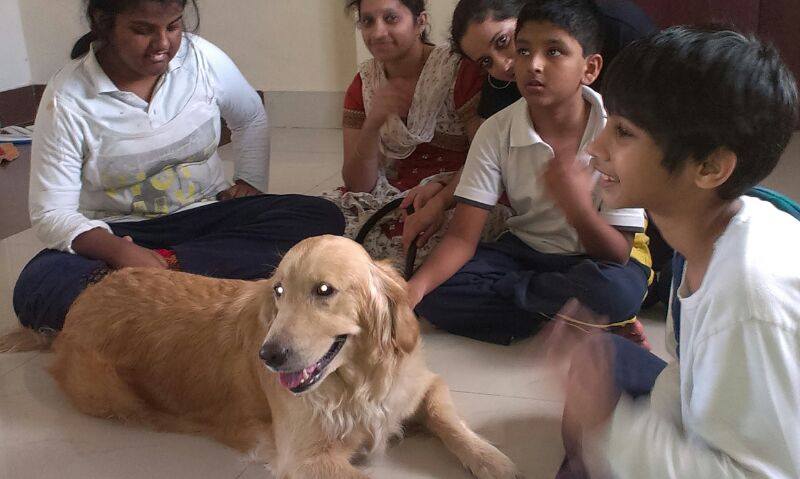
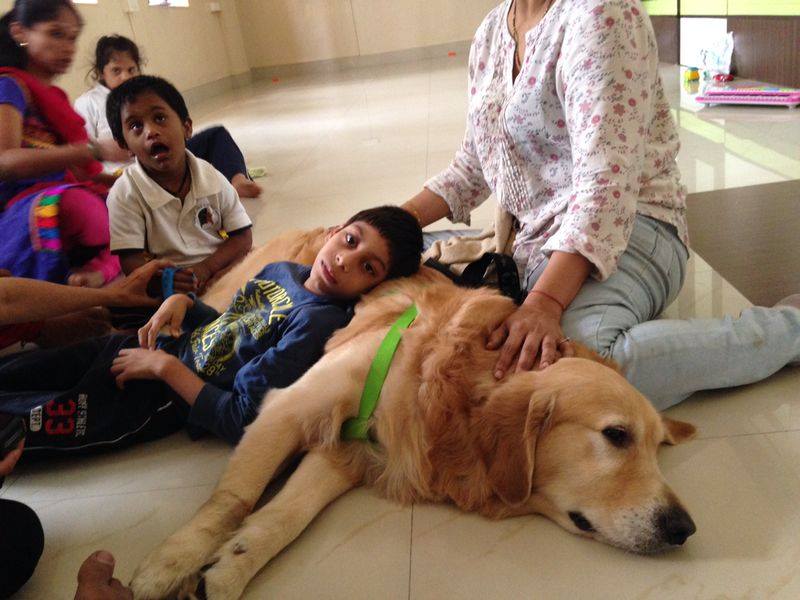
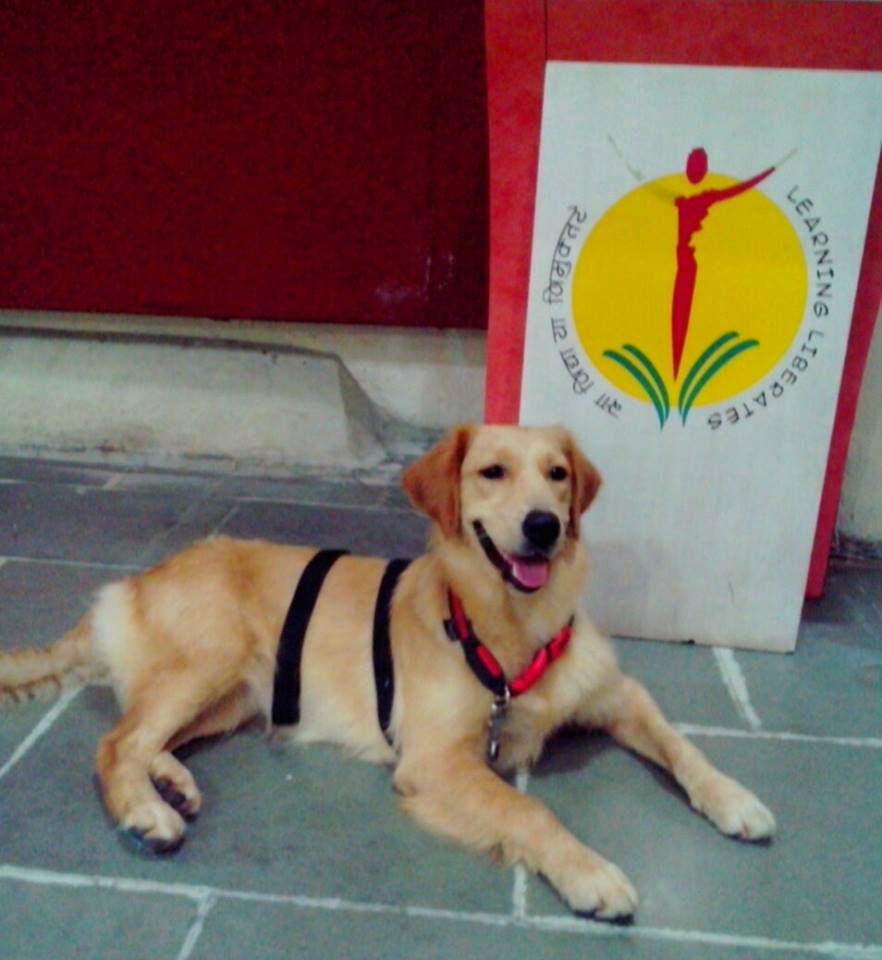
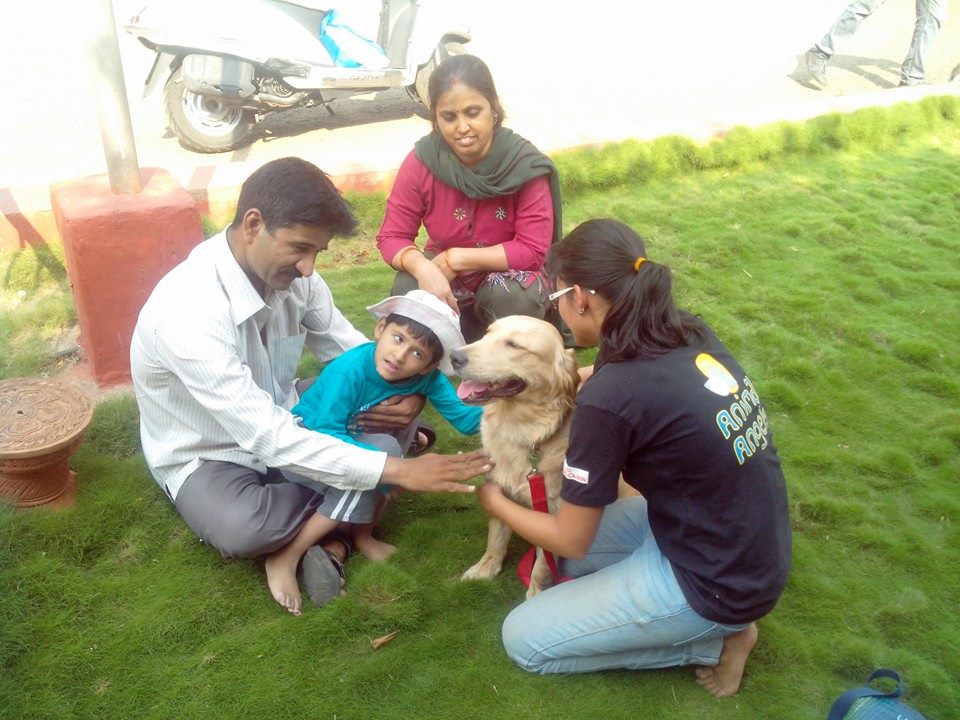 Therapy dog Sunshine, a one year old Golden Retriever and our youngest in-training therapy dog, conducted her first ever session with a special child at BalKalyan Sanstha,Pune. The child with cerebral palsy quickly bonded with Sunshine and learned to grasp a grooming brush, despite his motor issues.
Therapy dog Sunshine is a second generation therapy dog, trained and raised by team Animal Angels. She will not be working as a co-therapist with our Mumbai team.
Therapy dog Sunshine, a one year old Golden Retriever and our youngest in-training therapy dog, conducted her first ever session with a special child at BalKalyan Sanstha,Pune. The child with cerebral palsy quickly bonded with Sunshine and learned to grasp a grooming brush, despite his motor issues.
Therapy dog Sunshine is a second generation therapy dog, trained and raised by team Animal Angels. She will not be working as a co-therapist with our Mumbai team.
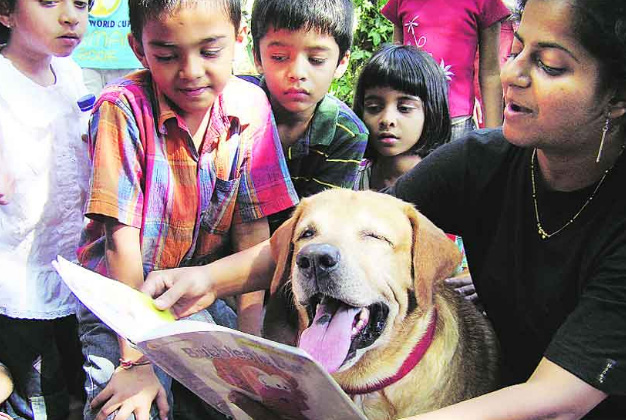
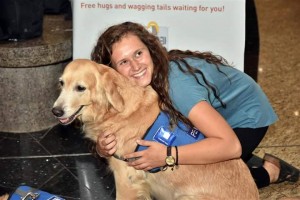 We at Animal Angels are happy announce our latest project with you. In a first-of-its-kind in Asia, GVK CSIA (Chatrapati Shivaji International Airport, Mumbai) has initiated a pilot program called “Comforting Angels”, a pet therapy program in partnership with the Pune-based Animal Angels Therapy Centre at the iconic Terminal 2 in Mumbai. These wagging “Comforting Angels” are employed to soothe, comfort and de-stress passengers inside the departure terminal.
We at Animal Angels are happy announce our latest project with you. In a first-of-its-kind in Asia, GVK CSIA (Chatrapati Shivaji International Airport, Mumbai) has initiated a pilot program called “Comforting Angels”, a pet therapy program in partnership with the Pune-based Animal Angels Therapy Centre at the iconic Terminal 2 in Mumbai. These wagging “Comforting Angels” are employed to soothe, comfort and de-stress passengers inside the departure terminal.
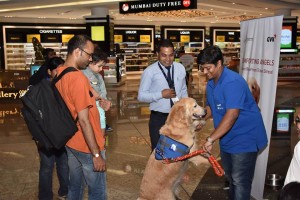
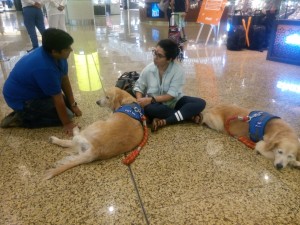
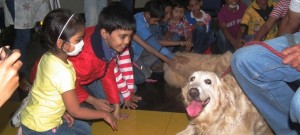 To mark the World Cancer day which comes on the 4th of February, Animal Angels Foundation conducted an animal assisted visiting session at Ruby Hall Cancer center for children undergoing various treatments for cancer, on 9th February, 2013.
Therapy dogs Kiara and Houdini interacted with the cancer patients at Ruby Hall along with the team of therapist.
We got a tremendous response from the children who, for the first time had a great reason to visit the hospital with a smile.
To mark the World Cancer day which comes on the 4th of February, Animal Angels Foundation conducted an animal assisted visiting session at Ruby Hall Cancer center for children undergoing various treatments for cancer, on 9th February, 2013.
Therapy dogs Kiara and Houdini interacted with the cancer patients at Ruby Hall along with the team of therapist.
We got a tremendous response from the children who, for the first time had a great reason to visit the hospital with a smile.